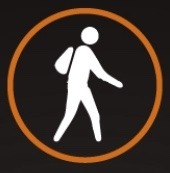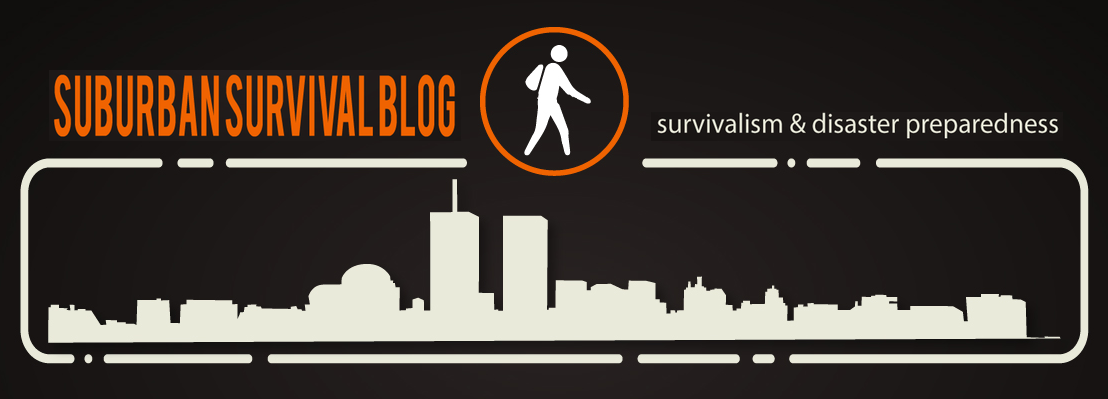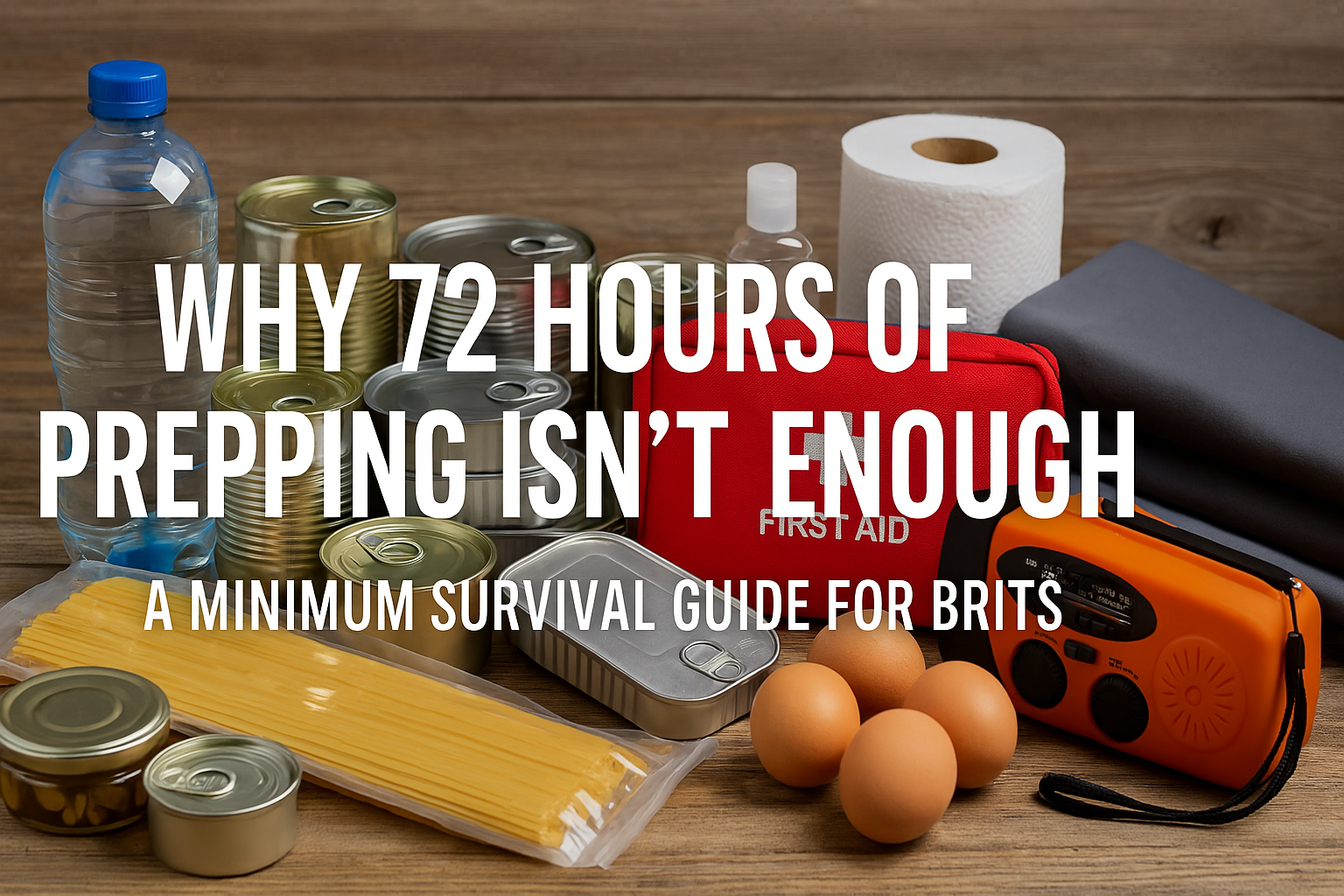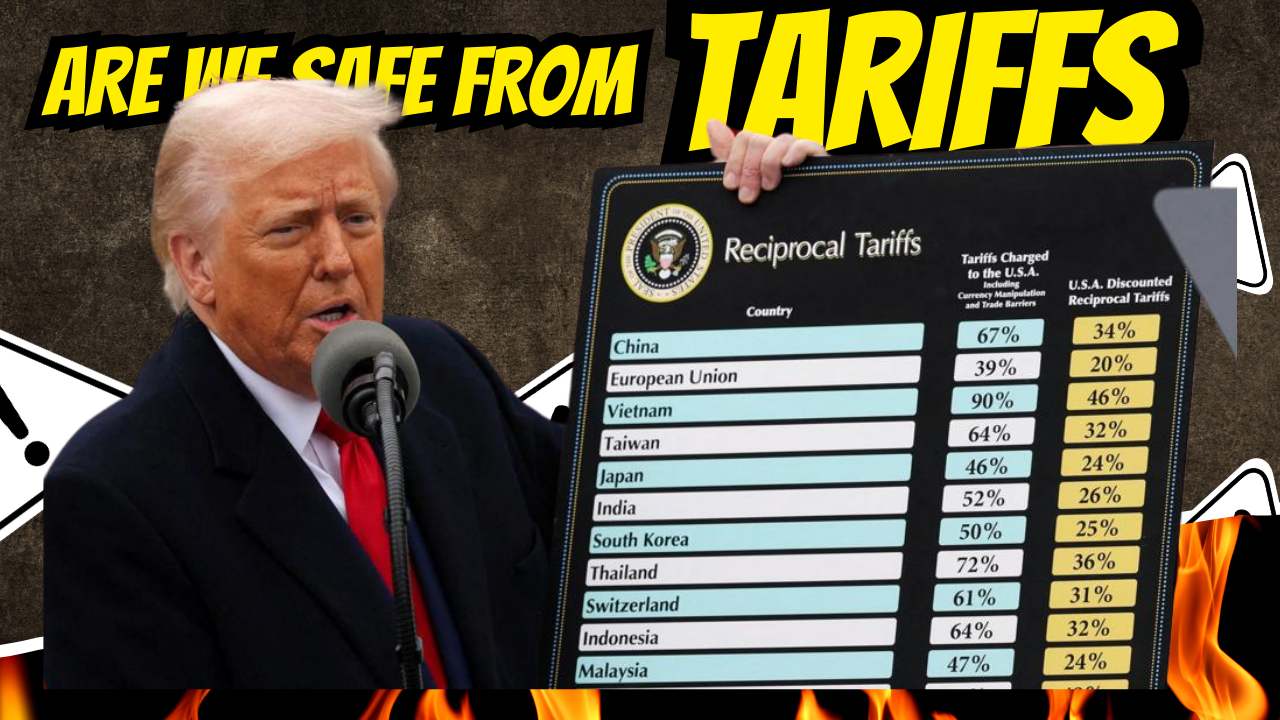Obscure Book and Movie Recommendations, as provided to me by an anonymous reader and contributor
Survival blogs and websites are full of reviews about this or that book for preparation and/or outdoor survival skills. Or how a popular movie or TV show exemplifies this or that aspect of preparation and survival. That is not the purpose of this article. I do not want to add yet one more review of a well known book, movie or TV show to the infinite collection.
Rather, there are several lesser known or not widely received books and movies that I believe are good sources of information and examples for preppers. While no fiction book or movie can ever say for sure how things will be in an SHTF event, they do allow us to safely explore many possibilities as well as bring to light issues that are better to deal with or at least discuss now before an SHTF event. Sometimes there are no answers but just being aware of the questions helps us prepare.
The following is a list of some of these books and movies that I have read and seen over the years which didn’t seem to get a lot of publicity or positive review yet hold many pearls for preppers.
(WARNING! Some of the description of these books and movies may be spoilers.)
Books
“Jurassic Park” by Michael Crichton – Though the story and author are by no means obscure, the book seems to have gotten lost in all the visual magnificence of the movie (it was the first to use CGI for large animal affects instead of stop-motion figures). In my opinion the book is infinitely better than the movie! You will be amazed how much of the book did not make it into the movie. And they changed many of the characters too (ex: In the movie the little boy was somewhat immature and the girl was level headed, but in the book it was the other way around!). In terms of survival the main take away from this book is: Presume nothing! Right from the start it is clear the Park as a business and tourist venture is doomed because of the assumptions the builders made, both the structure of the park and the cloned dinosaurs. Because of these assumptions they failed to put in rather basic controls and contingencies on the belief that “it will never happen”. I grant that even in real life time, resources, and money are not infinite so you can’t account for all possible contingencies. But this book outlines how presuming best-case rather than worse-case can be a disaster waiting to happen. Throughout the book the concept of “Chaos Theory” is highlighted and is an important take away point. The idea that small, often un-noticed/undetectable flaws at the start of a process will quickly grow and magnify such that by the time you realize there is a serious problem recovery may be too late. Also, that even at the same starting points, no two events ever result in the same conclusion because of these small flaws in the process. For preppers I take this to mean to make easy assumptions, presume the worst; And, just because something has happened (or not happened) before doesn’t mean it will be the same this time (or if last time it resolved itself doesn’t mean it will be easily resolved this time).
“My Side Of The Mountain” by Jean Craighead George – This is a modern classic story of a young teenager named Sam who leaves his home in New York City to live off the land in the Catskill Mountains of upstate New York. He has to deal with finding food and water, shelter, making fire, surviving the winter alone, etc. Along the way be befriends an occasional hiker, an older man, who comes to visit now and then and brings him a few supplies. He even captures a Peregrine Falcon and trains it to hunt for him (falconry). The book clearly describes his approach to identifying foods, make tools and living implements, etc. Although definitely not a how-to book it does a good job of describing his actions and I can find no technical fault with what it describes. Well worth read, it is also very child-friendly and a good way to teach young children about the outdoors as well as introduce them to some concepts of survival. There is a movie version but not nearly as good as the book and doesn’t go anywhere near as survival detailed. (Footnote: I’ve been told the recent book sequels are terrible but that’s usually the case with sequels.)
“Warday” by Whiteley Strieber and James Kunetka – This fictional story that takes place in the mid-80’s with two journalists that travel the country 5 years after a “limited” nuclear war between the U.S. and U.S.S.R. to document how the nation has changed. If you put aside some classic cold war hyperbole and anti-Reagan politics it’s a pretty good thesis on what the country might look like after just a small nuclear attack. But the radiation and EMP aspects are covered well. It’s interesting to explore what other countries in the world might come to our help post-attack. And a reminder that not everyone who comes to help is your friend. It also very much highlights how local and regional self interests take precedence over national interests. In a broader sense, in a SHTF event, it can be extrapolated that people will turn inward and be less willing to help others (more a “every man for himself” approach). Many people have commented we may be there already in America today even without a disaster or emergency.
“World War Z” by Max Brooks – No survival book review list would be complete without at least one zombie book. And since this one is soon to be a movie (I hope it is good!) it’s worth mentioning. This book is written in interview format, taking place several years after the great world war against the zombies. In terms of survival there are several themes it strongly relates. People as individuals have to recognize there is a growing problem and can’t count on official direction or government help to get them through. In the book nearly all the worlds’ governments are very slow to acknowledge the zombies, choosing to ignore reports even from their own top secret intelligence services. And even when they do final accept the zombie presence most see it as a mere local police issue, not a national or international threat. Although it does describe some people finally taking matters into their own hands and organizing or trying to evacuate they have little idea where to go or what to bring with them (no warm closes for freezing conditions for example). The book warns of false quick and easy solutions. In a re-occurring sub-plot line a profiteer gets a pharmaceutical company to make a vaccine they claim prevents the zombie infection. They engineer the government to fast-track it’s approval, back doctors liable for its administration, and yet know it is totally ineffective. There are several troubling accounts of police and even military abandoning their posts for their own survival. And one very dramatic sub-plot a group of extremely wealthy Hollywood types, business people, and politicians build a fortress-like house in the Hamptons of Long Island to ride out the zombie invasion. But they purposely make the house a “Big Brother” style facility with TV and web cams everywhere to show off their abode. It may be zombie impregnable but they never realize that people scared for their own lives will try to get in! The lesson here: Loose lips sink ships! (Keep your supplies and retreat a closely guarded secret.) On the positive side, it does make mention a lot of how hands-on skills become more valuable than white-collar skills (ex: lawyers become chimney sweeps). It gives good examples of the need for communities to come together for mutual benefits and protection. And it again shows the value of trade/barter. One sub-plot is of a Chinese nuclear sub that has gone rouge and ends up part of a marine community in the South Pacific. They trade the electric power from their nuclear reactor for supplies. Overall, while reading this book I had a very eerie sense that if you replaced “zombie” with “economic crisis” the rest would pretty much fall into place as well.
Movies
“Carriers” (2009) – This movie received very little attention. It didn’t play long in theaters before going to DVD. Starring Chris Pine (the new Capt. Kirk) it’s about two brothers and their girlfriends during a deadly and highly contagious viral outbreak that apparently is wiping out the whole country, if not the world. The group is traveling across the country to a place on the California coast they visited as children and think they can find refuge at now (or at least enjoy their final days). They start out with a very strict set of “rules” for surviving (such as “Avoid contact with the infected at all costs!”) and a code of conduct for the situation. But as the movie progresses they have to deal with very hard issues that challenge their views of morality and ethics like trying to obtain more fuel, helping a father and infected daughter they meet, abandoning their own infected parents, etc. A good thinker, this movie forces you to contemplate how you would respond to such an event. Plagues are not at all uncommon in human history even without including a bio attack.
“The Happening” (2008) – While not an obscure movie (most of M. Night’s movies have been very good) but not all that well received by critics (I liked it) this movie can be seen as an analogy for a WMD attack on urban centers. Whether M. Night had that in mind or not I don’t know. It deals a lot with the issue of trying to get away from the affected area. I list this movie for two reasons. First, there are several points in the movie where I think the main characters could have “dug in” and waited out the event instead of still running. For example, at one point they are in a small greasy-spoon diner. They have food, water, power, gas, fuel, sanitation and shelter. Seems like a pretty good place to hunker down. But the argument can also be made for keeping on the move and getting further away from the city (in this case Philadelphia). It’s a dilemma we may all have to face: Get as far away as possible, or, find a good location and try to ride it out. The second reason, it shows an example, albeit extreme and somewhat irrational, of what might happen if during an SHTF event people try to force their way into a home. I won’t say any more on that. It’s a scene in the movie that got a lot of criticism. If you like Shyamalan movies this is worth seeing.
“The Day Of The Triffids” (1981) – Not to be confused with the 1963 movie (a cult classic) this is actually a BBC mini-series. The triffid monsters are a good analogy for a biological or other WMD attack. And the mass blindness the meteor shower creates (though it is later theorized it wasn’t a meteor but something more sinister) is a good analogy for an SHTF event that leaves huge numbers of the population unable to provide even basics for themselves. In this version of the story the monsters themselves actually play a relatively minor part. Most of it deals with the people, both unaffected survivors and affected, and how they come to grips with the realities of the new world. A large part of the story is about the sometimes violent struggle between those who believe the unaffected survivors have an duty and obligation to care for and support the affected survivors, and those who take the harsh but necessary point of view there are just too many affected people and too few unaffected people and resources to be of any long term good; Those who survive unaffected must make the hard decision to abandon the rest for their own survival. Mixed in are encounters with street gangs and rouge military. But it is this conflict between those who are capable of taking care of themselves and those who cannot contribute at all that makes this movie worth seeing. Even without a disaster, as a social commentary we are seeing more and more of this (those who have are being told it’s their job to care for and provide for those who don’t). At one point a group of ‘advocates’ for the affected kidnaps a group of unaffected survivors and literally chains them to groups of the affected to force them to take care of them. It also deals with the harsh reality that people with knowledge, skills, and/or supplies will be more valuable than those who have neither. Teaching people skills is mentioned several times as an important function, not only for their own survival but to pass on knowledge that will otherwise be lost over time but is vital to learn if a society is going to survive as anything like being modern. If you can get past some of the heavy British accents (hard for the American ear to understand at times) this movie is a good thinking saga.
“The Zombie Diaries” (2006) – Yes, zombies once again play the role of proxy for terrorist attack/WMD attack/economic meltdown etc. The British movie is filmed in the first-person “Blair Witch” style which can make it difficult to watch at times. But unlike the usual slash&eat zombie movies this is better, from the prepper point of view. This move is filmed in the UK. As such it shows reactions to a WROL environment different from how we currently in the U.S. would view it. For example, England has very strict gun control laws. Rifles and shot guns are heavily controlled, so is the sale of ammunition, and handguns for private citizens are non-existent. While U.S. isn’t there (yet) it seems we are heading that way a lot faster lately (as of writing this the state of Connecticut is proposing legislation that all state residents must register their rifle and shotguns with the CT Department of Public Safety, and renew the registration every 5 years; This would apply to both new sales and current owners). In that light, the movie highlights the problems of self defense in a country where legal firearms and ammunition are simply not there. What little the survivors can find is low power and slow shooting (a lot of bolt action instead of semi-auto). There is the usual mass confusion, failure or lack of willingness to grasp what is really happening, and lack of support or useful information from official sources. But most importantly this movie highlights a threat all preppers should be aware of: Unchecked criminal activity. I won’t go much into detail (not too much spoiler) but I will say that two of the characters are not who they appear to be (you can spot that easily if you have a keen eye) and end up being just as much threat as the zombies. In a SHTF event leading to WROL there will be many violent criminals roaming around looking for hapless victims, knowing there is no law enforcement coming to help. These criminals may pretend to be other needed people to gain your trust until it’s too late. Be careful! (If you do watch the movie on DVD be sure to watch the bonus clips. There’s a segment that adds to this as well.) This movie is not for kids, both because of the zombies and the violent criminal element theme.
“Diary Of The Dead” (2007) – Another George A. Romero zombie movie but infinitely better than his prior movie “Land of the Dead”. I’m not sure if this movie was inspired by the UK movie discussed above or visa-versa, or simply two ideas at the same time. But either way it is a good movie. Also done in the first-person “Blair Witch” style the movie is about a group of college film students shooting a film for their term project when the zombies come. It doesn’t waste a lot of time in denial about the zombies. Society breaks down quickly and they do a pretty good job coming to grips with what is happening and adapting to the needs of survival (finding food, fuel, weapons, shelter, etc). Along the way they have to deal with a gang that is gathering up all supplies for their own purposes (I think the encounter would have been far more violent in reality but it does give hope that some people would be helpful, even if it’s more in their own self interests). It also deals with the problem of law enforcement acting on its own. In one scene the students are stopped at a National Guard road block. They think they have finally found help. Instead, the Guardsman loot their camper for food and water. But it does prominently make note the Guardsmen aren’t thugs as they specifically didn’t take the guns which would have left them defenseless against the zombies. The movie also shows several attempts by the government to explain away early video of zombies as merely people on drugs. Even as groups of zombies stager through the streets of major cities the “official” story is it’s just people on drugs. The movie covers the subject of a house with a “safe room”, a topic that has been discussed at times by preppers (an underground bunker is similar). While secure, it’s easy to get trapped inside. Further, the movie does pretty well showing how communications, especially the internet, can play an important role during a disaster (if the government doesn’t turn it off as recent events in Egypt have shown).








